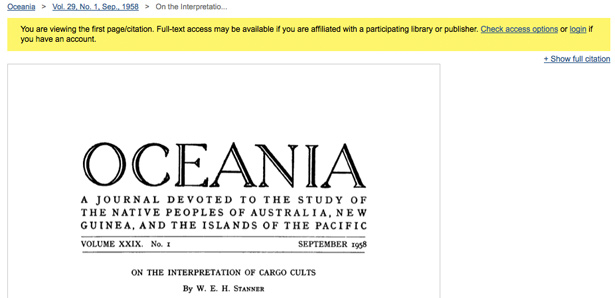Every Year, JSTOR Turns Away 150 Million Attempts to Read Journal Articles

JSTOR, the database of largely academic journals, is making its archive a little easier to access, the Chronicle of Higher Education reports today. Under a new arrangement, the non-profit will allow users to read a very limited number of articles. When a reader encounters an article in one of 70 select journals, she will have to register, then add the article to an online locker. This can be done with three articles and each individual story cannot be swapped out for 14 days.
The new plan, called Register & Read, seems like a step in the right direction, but it's hard to tell.
I would echo Atlantic contributor and historian Yoni Applebaum in his assessment of this situation: "Is @JSTOR tiptoeing gingerly toward public access, or making a meaningless gesture to ward off critics? Take your pick."
Why is this important? Well, get a load of this stat. JSTOR told the Chronicle that each and every year, they turn away 150 million attempts to gain access to articles. That's right. 150 million attempts!
The way I see it, that's 150 million chances lost to improve the quality of the Internet. JSTOR, as the keeper of so much great scholarly work, should be one of the Internet's dominant suppliers of facts and serious research. But if something is not publicly available, key gatekeepers like journalists and Wikipedians, move to the best available source, even if they know that there probably is a better source behind JSTOR's paywall. So, instead, JSTOR's vast troves of valuable information remain within academia and the broader Internet's immune system is that much weaker.
"Is JSTOR tiptoeing gingerly toward public access, or making a meaningless gesture to ward off critics? Take your pick."
Alexis Madrigal is a contributing writer at The Atlantic and the host of KQED’s Forum.